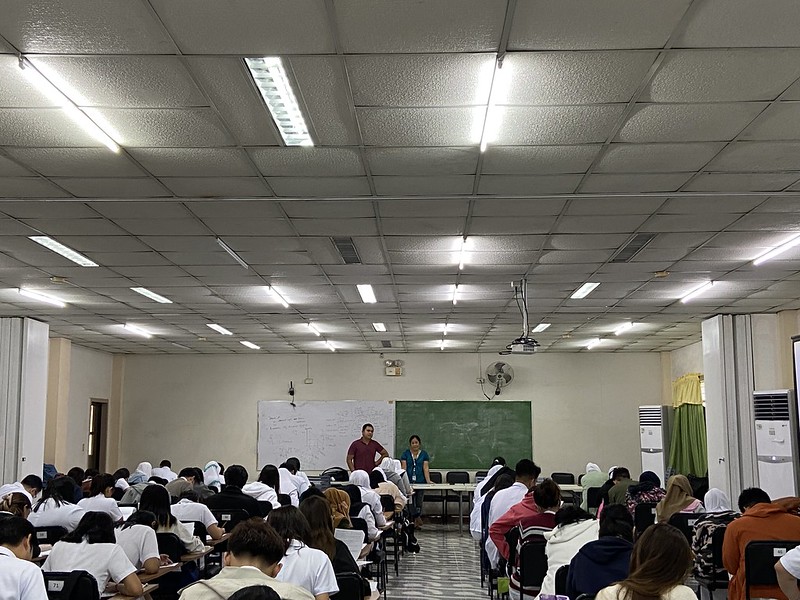Quiet contemplation on Easter Sunday

I enjoy the Holy Week to the same degree, if not more, as I do Christmas. These holidays, whose schedules are not explicitly mentioned in Scripture—a fact that dissuades other Christians from celebrating them at all—bookmark key events in the earthly ministry of Jesus Christ. Secular calendars designate them as national holidays. And rightly so. For who, in his right mind, would open cafés during this time, especially on Good Friday, when the inhabitants of the city are at home, recuperating from and avoiding the summer heat, or in church, deep in prayer and contemplation?
There is a season for every activity under heaven. So goes a line from Ecclesiastes, written by the wise King Solomon, who, when asked by God what gift he would like to receive, chose wisdom over riches and long life.
This rule, or reminder, if not fatherly wisdom, has encouraged my choice of quiet contemplation and prayer and the reading of books these past days. The harsher alternative would be to resume regular programming: going to work, busying myself with tasks and to-do lists. Honest work is a blessing from God. And so is rest.

I could have chosen to extend my trip where it was nippy, sweater-weather and all, devoid of the discomfort of tropical humidity. But I could not quite pass the opportunity to enjoy my own room and my own thoughts and the thoughts of God. Rare are the moments when I can sit down with a book and a cup of coffee, my phone hardly ringing save for the reminder that my screen time is down by 25%, my presence hardly needed in hospitals (ah, what grace!).
The ride from the airport early this week showed me roads that were almost empty, as in the pandemic lockdown. So hot was the weather that the grass by the road turned brown, and the trees looked thirsty.
At home, the air conditioning is in full blast. Even Paul cannot stand the heat and would curl up in my mother’s bedroom, where it is cooler, and where he is conditionally allowed to stay as long as he remains a good boy.
I spent the greater part of Good Friday in church for prayer and fasting. Delighting in God’s Word was the theme of the congregational meditation, drawing from the riches of Psalm 119 and from the reminder that the Word is with God and the Word is God Himself (John 1:1)—beautiful theological and practical truths that animate my life and those in the household of faith. I was rewarded with a nourishing meal, the perfect arroz caldo, our local church’s tradition to break the short fast.
During this season I also enjoyed The Chosen (season 1) on Netflix. What I love about it is the tender portrayal of Jesus living a perfect life in an abject, sinful world, choosing to mingle with the demon-possessed, the lepers, the lowly.
I finished Marilynne Robinson’s Reading Genesis, her meditation on the first book of the Bible. Her close reading of Genesis has stirred in me a gratefulness for the priceless truths of Biblical Christianity, even if being a Christian has fallen out of flavor in the secular world. She writes about Abraham, Isaac, Jacob, Noah, and Joseph; and compares and contrasts Genesis with the Enuma Elish and other similar accounts from surrounding cultures at the time. I read, but not wholeheartedly agree with, everything that Robinson writes. I do not find her particularly relaxing but always worthwhile. I often have to repeat myself and am rewarded by greater illumination after several rounds of rereading. I must have listened to all her podcast and YouTube interviews, and I love her novels and her essays. I am what you call a huge fan.

I finally got to finish The Luminaries by Eleanor Catton, a gift from my friend Racquel Bruno in 2015, during our residency in internal medicine. I started reading it nine years ago. I got preoccupied with work. I was also bored by the first few chapters that I had to set it aside, hoping I would probably find the stamina and encouragement to complete it. In January this year, I took a brief survey of my book collection. Catton’s novel stood out like a sore thumb. I read it from the beginning—not from the middle where I had placed my bookmark, because so much time has passed that I’d already forgotten the plot. It is the longest book to win the Booker Prize with its 800-plus words. There was sweetness and deep joy in reading it the second time around, a reminder to myself not to give up too easily. My favorite part, ultimately, is the love story between the naïve but good-natured Emery Staines and the prostitute Anna Wetherell. Now I am itching to visit New Zealand and to read Catton’s Birnam Wood.


It is Easter Sunday today. Christ is risen. He is risen indeed.
Labels: books/reading, daily, faith




